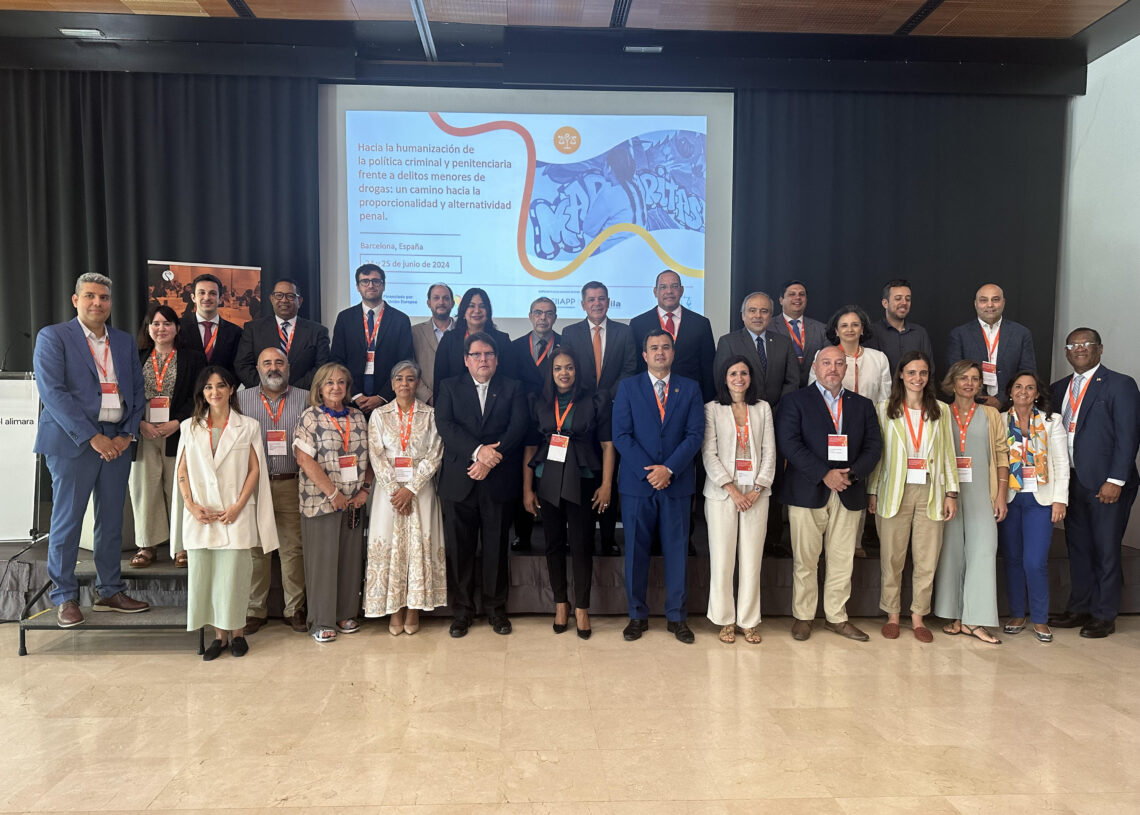The regional workshop ‘Towards the humanization of criminal and penitentiary policies for minor drug offenses: a path towards proportionality and criminal alternatives’ brought together more than 35 jurists, prosecutors, representatives of countries, organizations and members of civil society from Latin America, the Caribbean and the European Union on June 24 and 25 in Barcelona (Spain).
Organized by COPOLAD III program and the Conference of Ministers of Justice of Ibero-American Countries (COMJIB), the meeting laid the foundations for a regional pact on proportionality and criminal alternatives from a human rights perspective. The objectives of this agreement are to prioritize reinsertion and re-socialization over punishment and to reduce prison overcrowding, as well as to achieve greater effectiveness in the fight against drug trafficking. Usually, mass incarceration measures affect the lowest links in the chain, easily replaceable, which generates a very negative impact on their families, and on the incarcerated persons, many of them women who suffer violence or are part of trafficking or extortion networks.
Proposals for a less punitive justice
During two days, different round tables and working groups analyzed the national situation of penal and prison policy in Colombia, Argentina, Brazil, Portugal, Dominican Republic, Paraguay, Costa Rica and Spain; the implementation of gender perspective and the importance of considering diferential perspective, racial and sexual diversity; problems shared by the entire region, as well as the contribution of COPOLAD III to the dialogue.
In this direction, several proposals were made, among them the commitment to new narratives against “populist punitivism”, the trend towards a more proportional legislation from a human rights and gender perspective or the defense of state policies that are not subject to electoral periods. At all times it was prominent that criminal justice must take into account the conditions of vulnerability and hence the importance of betting on social and economic inclusion in relation to drug offenses.
Enrique Gil Botero, Secretary General of COMJIB, highlighted the wide consensus that exists among the judicial representatives of the countries on the need for a change of model: “Restorative justice works and changes lives. The punitivist model has failed and we urge the legislative powers to take note of what we have discussed these days“.
The regional workshop on Alternative Criminal Justice was attended by representatives of the Ibero-American Association of Public Prosecutors (AIAMP), the Inter-American Association of Public Defenders (AIDEF), the ministries of Justice of Colombia, Brazil and Argentina, representatives of the judiciary of Costa Rica and the Dominican Republic, the Spanish Government Delegate against Gender Violence, Carmen Martínez Perza, and members of UNAD and RIOD, among others.






